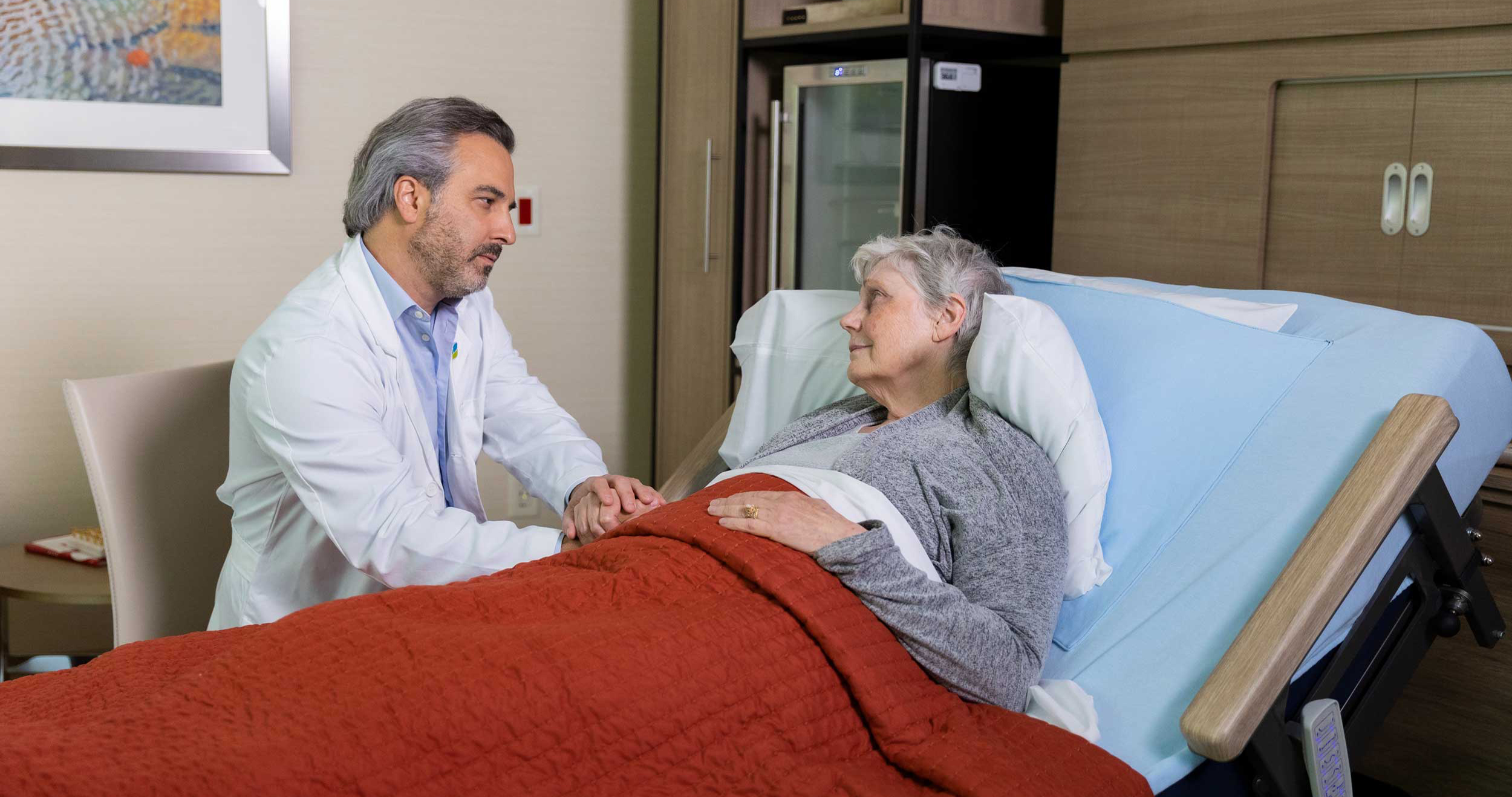
Crisis Care
Crisis care means patients receive care on a short-term, continuous basis to monitor and manage uncontrolled symptoms. This continuous care is necessary when a patient experiences a medical crisis or when symptoms are more intensive.
Around-the-clock nursing or extended periods of support during these times benefit the patient and family, allowing caregivers to focus on emotional support for the loved one while care teams provide critical medical care. The goal is intensive support to enable patients and their families to return to stable and routine home care. In some instances, continuous care is offered as a way to assist the patient and their family if the patient is actively dying.
Crisis care is typically provided by nurses in close communications with physicians and family members – at least 50 percent of the care must be provided by nursing staff. Personal care specialists can supplement nursing care to assist in the physical care of the patient and help to make the patient comfortable.

